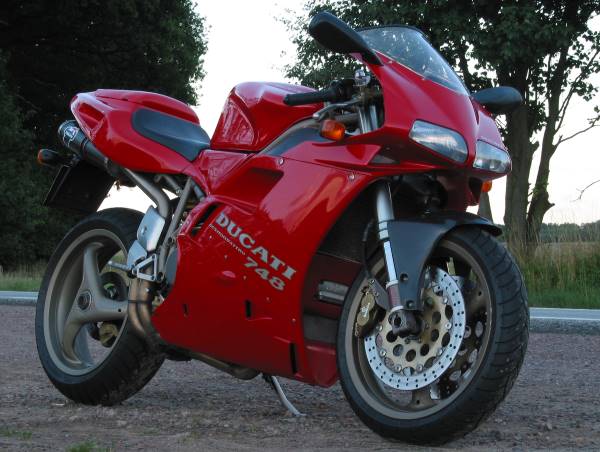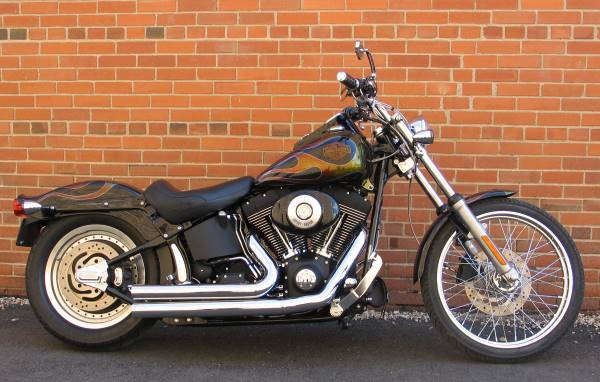A. Not go faster than 30 km/h.
A. Not go faster than 30 km/h.
B. Use the rear brake only.
C. Allow extra stopping distance.

There are many different aspects to a motorbike that will affect your ability to ride it. When you first get on a new bike you should first consider whether it's set up for you properly. Are the wing mirrors adjusted so that you can see up the lane behind you? Are the handlebars and foot controls easy for you to reach?
If the bike has a different power-to-weight ratio than what you are used to, it will change your experience on the bike. If it's less then you will take longer to accelerate; if it's more, its acceleration could catch you out, causing you to wheelspin or for the front wheel to lift up.
If the tyres sizes are different that will affect your acceleration characteristics. If you're used to a custom bike with a huge rear tyre and plenty of traction off the line, you might find that another motorbike wheelspins if you give it as much throttle.
How good are the brakes? If you've got a monster set of stoppers on the front then you'll probably be able to pull up really quickly. Are they really sensitive? If so, be careful you don't lock the front wheel or go over the handlebars. The same applies with locking the rear wheel. If the bike is a completely different kind of bike, for example a cruiser like the one pictured below, when you are used to riding a sports bike, like the one pictured above, then your brake balance will be different as there is more weight over the rear of a cruiser and therefore you can get more braking power with the rear brake.

If the bike is much heavier than a bike you are used to then you might need to use more of your body weight to help it steer in the corners. It might also take longer to stop under brakes. When you stop the bike, if it's heavy, you'll need to take more care with your balance; if you drop the bike you might not be strong enough to pick it up again on your own (although, this technique does work for large bikes).
Do you know where all the switches are? How do you turn on the lights or indicators, for example? Do you understand the dashboard readouts and warning lights?
If it's a new bike, are the tyres scrubbed in? If not, they will be super slippery.
So, as you can see, there are plenty of reasons why you should take it easy on your first outing with a new bike.